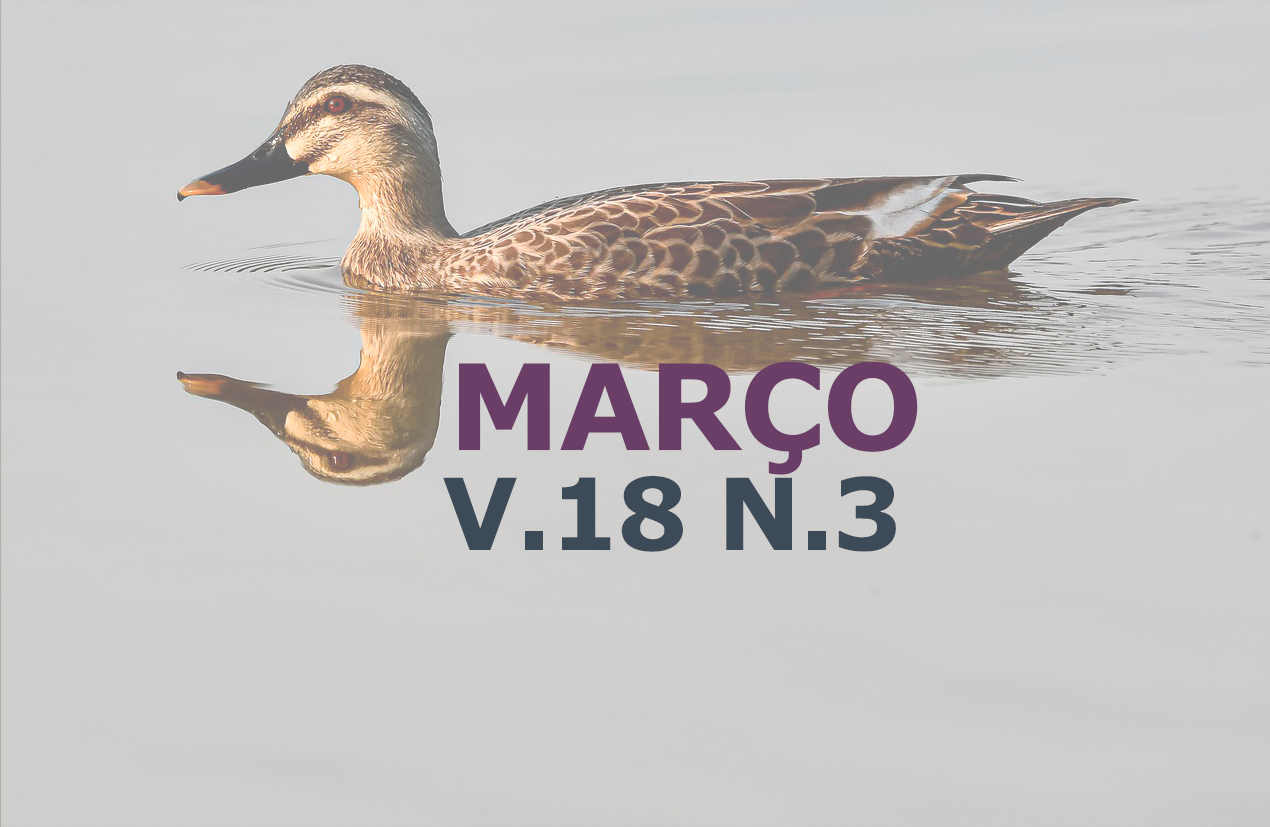Terapia Viscum album injetável no tratamento e sobrevida de paciente diagnosticado com carcinoma hepatóide
Relato de caso
DOI:
https://doi.org/10.31533/pubvet.v18n03e1560Palavras-chave:
Cancer, carcinoma, homeopathyResumo
O câncer é uma patologia de causa multifatorial e tratamento complexo. Muitas vezes, apesar de aderir estritamente aos protocolos de tratamento recomendados para um tipo específico de tumor, há casos em que as terapias convencionais não conseguem alcançar sucesso terapêutico. Este estado refratário pode tornar a enfermidade fatal para os pacientes. Consequentemente, há uma importância crescente no desenvolvimento de terapêuticas que visam controlar efetivamente o crescimento do tumor, minimizando ou não provocando efeitos colaterais. Neste sentido, a homeopatia e o Viscum album surgem como caminhos promissores para melhorar a qualidade de vida dos pacientes tratados. De acordo com os relatos atuais, estas terapias contribuem para o bem-estar geral e, em casos raros, podem levar à remissão completa do tumor. No entanto, o seu papel principal é muitas vezes controlar o crescimento tumoral, tornando assim uma doença crônica para os pacientes. Esse fato, normalmente, mantém quadro clinicamente estável durante todo o tratamento. O objetivo deste artigo é apresentar um caso de carcinoma de glândula hepatóide que não respondeu à terapia convencional, mas foi posteriormente tratado por meio do tratamento integrativo com Viscum album homeopático injetável, de forma subcutânea em potências combinadas, com a administração diária. Esta abordagem de tratamento manteve com sucesso a qualidade de vida ideal do paciente por mais de 12 meses.
Referências
Baghban, F., & Bayati, A. (2020). Hepatoid gland carcinoma in dog: Case Report. Veterinary Clinical Pathology The Quarterly Scientific Journal, 14(53), 85–92.
Engelsdorff, J. S., Pessel, M. V., & Brancher, G. B. (2022). Diagnóstico e tratamento de adenocarcinoma de glândulas hepatoides em um cão: Relato de caso. PUBVET, 16(1), 1–5. https://doi.org/10.31533/pubvet.v16n01a1006.1-5.
Fossum, T. W. (2021). Cirurgia de pequenos animais (3ed.). Elsevier Editora.
Jardim, J., Kobayashi, P. E., Cosentino, P. D., Alcaraz, A., Laufer-Amorim, R., & Fonseca-Alves, C. E. (2018). Clinicopathological and immunohistochemical description of an intrapelvic hepatoid gland carcinoma in a 14-year-old Teckel dog. Veterinary Quarterly, 38(1), 9–13. https://doi.org/10.1080/01652176.2017.1404167.
Liptak, J. M. (2013). Hepatobiliary tumors. In W. S. J. & E. G. Macewen (Eds.), Small animal clinical oncology (pp. 405–412). Elselvier Saunders.
Lucena Júnior, L. C., Lopes, E. B., Santos, C. M., Valois, A. A. C., Menezes, N. J., Santana, S. S., & Lima, I. S. S. (2021). Tratamento integrativo homeopático e farmacopuntura com Viscum album em carcinoma mamário canino: Relato de caso. PUBVET, 15(6), 1–9. https://doi.org/10.31533/pubvet.v15n06a835.1-9.
Mutinelli, F., Vascellari, M., Melchiotti, E., Bigolaro, M., & Bozzato, E. (2007). Intra-pelvic chondrolipoma in a dog. Journal of Comparative Pathology, 137(2–3), 160–164. https://doi.org/10.1016/j.jcpa.2007.06.006;
Pisani, G., Millanta, F., Lorenzi, D., Vannozzi, I., & Poli, A. (2006). Androgen receptor expression in normal, hyperplastic and neoplastic hepatoid glands in the dog. Research in Veterinary Science, 81(2), 231–236. https://doi.org/10.1016/j.rvsc.2005.11.001.
Rodrigues, N. M., Dantas, S. S. B., Quessada, A. M., & Rodrigues, D. S. A. (2017). Carcinoma de células basais em cadela: Relato de caso. PUBVET, 11(8), 744–839. https://doi.org/10.22256/pubvet.v11n8.771-774.
Romano, F. S., Saiga, R., Figueiredo, R. C. C., Cristino, W. E., & Amaral, R. S. (2021). Adenocarcinoma de cólon diagnosticado via colonoscopia e tratado com quimioterapia metronômica em cão. PUBVET, 15(6), 1–4. https://doi.org/10.31533/pubvet.v15n06a838.1-4.
Silva, M. C., Fighera, R. A., Souza, T. M., Graça, D. L., & Barros, C. S. L. (2005). Urethral adenocarcinoma in a bitch. Ciência Rural, 35(4), 935–937.
Telles, S. A., Monteiro, R. C. P., Corrêa, F. M., Calvo, P. Z. U., & Oliveira, A. P. L. M. (2017). Carcinoma de células de transição de bexiga em cão: Relato de caso. PUBVET, 11(1), 82–86. https://doi.org/10.22256/pubvet.v11n1.82-86.
Tobias, K. M., & Johnston, S. A. (2013). Veterinary surgery: small animal-E-BOOK. Elsevier Health Sciences.
Tunç, A. R., Alcigir, M., & Vural, A. S. (2014). Concurrent metastatic hepatoid gland carcinoma and eosophagogastric leiomyosarcoma in a dog. Ankara Üniversitesi Veteriner Fakültesi Dergisi, 61(1), 29–34. https://doi.org/10.1501/vetfak_0000002601.
Turek, M. M., & Withrow, S. T. (2013). Periannal tumor. In S. J. Withrow, D. M. Vail, & R. L. Page (Eds.), Small animal clinical oncology (pp. 423–431). Elselvier Saunders.
Vail, D. M., Thamm, D. H., & Liptak, J. M. (2019). Withrow and MacEwen’s Small Animal Clinical Oncology-E-Book. Elsevier Health Sciences.
Valle, A. C. V. (2020). In vitro and in vivo evaluation of the ultra-diluted Viscum album efficacy and safety. Catholic University of Brasilia – UCB. Brasilia, Brazil.
Valle, A. C. V, & Carvalho, A. C. (2021). Homeopathic Viscum Album on the Treatment of Scamous Cell Carcinoma Lesion in a Dog (Canis familiaris)-Case Report. Integrative Journal of Veterinary Biosciences, 5, 1–3. https://doi.org/10.31038/ijvb.2021523.
Wajczyk, T., Mühlen, R. V, Cunha, L. G., Ometto, M. J., Pereira, J. A., Figueiredo, K. B. W., & Almeida, A. C. (2019). Carcinoma prostático e urocistolitos concomitantes em cão Dálmata Pro. PUBVET, 13(12), 1–4. https://doi.org/10.31533/pubvet.v13n11a448.1-4.
Withrow, S. J., Page, R., & Vail, D. M. (2020). Small animal clinical oncology. Elsevier Health Sciences. https://doi.org/10.1201/9781315381855.
Downloads
Publicado
Edição
Seção
Licença
Copyright (c) 2024 Ana Catarina Viana Valle, Maria Luiza Pereira Viana Valle, Aloísio Cunha de Carvalho

Este trabalho está licenciado sob uma licença Creative Commons Attribution 4.0 International License.
Você tem o direito de:
Compartilhar — copiar e redistribuir o material em qualquer suporte ou formato
Adaptar — remixar, transformar, e criar a partir do material para qualquer fim, mesmo que comercial.
O licenciante não pode revogar estes direitos desde que você respeite os termos da licença. De acordo com os termos seguintes:
Atribuição
— Você deve dar o crédito apropriado, prover um link para a licença e indicar se mudanças foram feitas. Você deve fazê-lo em qualquer circunstância razoável, mas de nenhuma maneira que sugira que o licenciante apoia você ou o seu uso. Sem restrições adicionais
— Você não pode aplicar termos jurídicos ou medidas de caráter tecnológico que restrinjam legalmente outros de fazerem algo que a licença permita.





